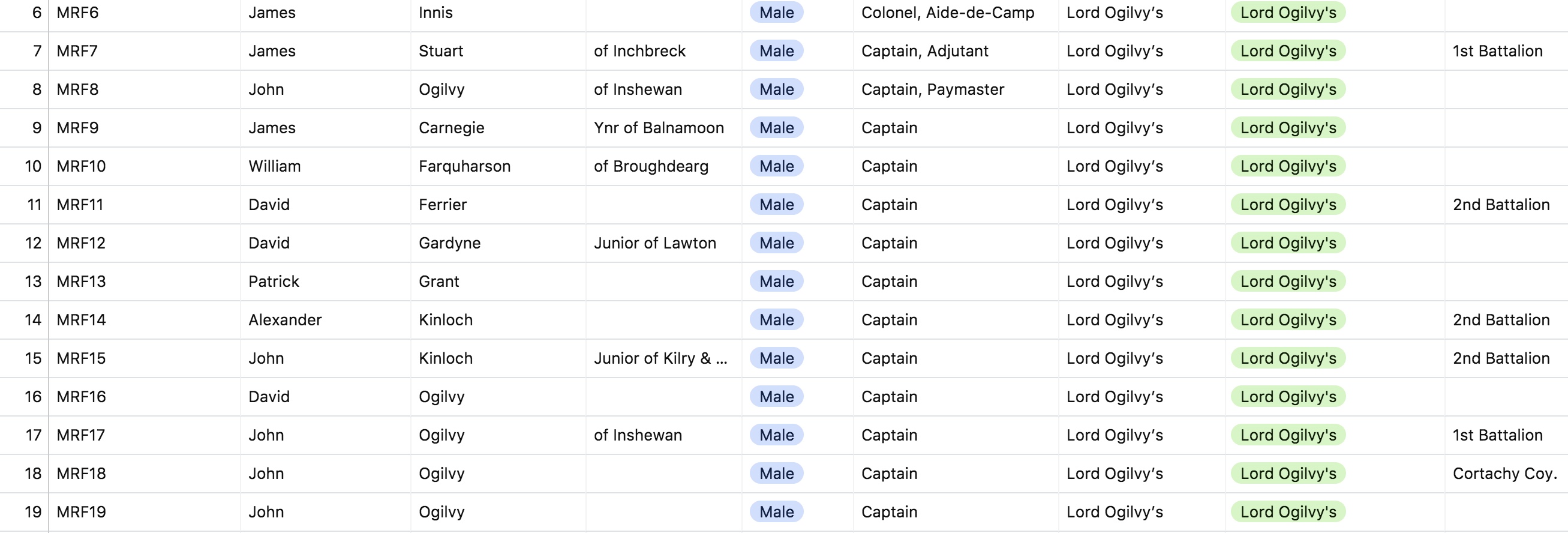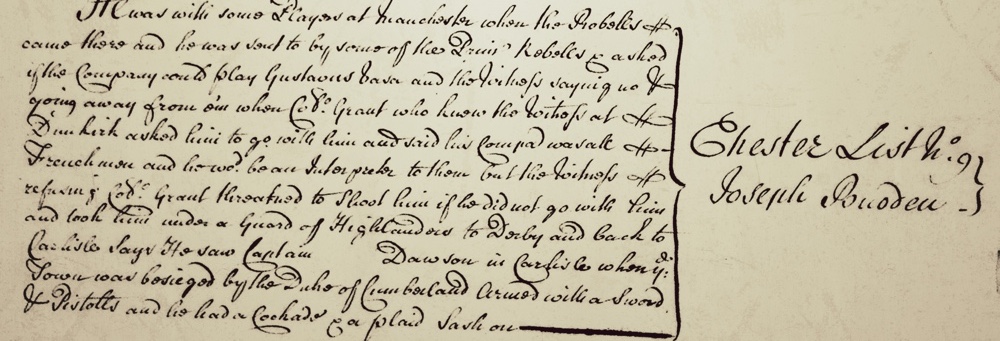If you enjoy bewilderingly complex historiographies and you’re wondering exactly what is the purpose for the creation of a historical database like JDB1745, this post is for you. What follows is a use case involving a limited analysis of the Forfarshire Jacobite regiment under David Ogilvy, 6th Earl of Airlie, and how a tool like JDB1745 can help us collect and define detailed information across a number of disparate primary sources. This method of analysis, called prosopography, is essentially an intersection between historical sociology and data-based biography that has risen to prominence as our ability to collate and process big data has matured. By comparing and contrasting large amounts of discrete characteristics about historical personae, we can better understand the context of their lives and we can make more confident assertions about their roles and characteristics in the historical timeline.
Perhaps no more deserving of this disciplinary application is the ever-popular Jacobite era, which has long suffered from misinterpretation, mythistoire, and insufficient data. Though we are currently enjoying a popular resurgence of interest in the subject during the lead-up to the 275th anniversary of the Battle of Culloden, scholarly exploration of plebeian Jacobite demographics is extremely limited and many primary sources remain generally out of easy public reach.1 This, at its core, are the reasons that we created The Jacobite Database of 1745.
To demonstrate its value, we present a short step-by-step example of how the database can be used as a tool for data analysis that both professional and armchair historians alike will be able to use for their own research. We chose Lord Ogilvy’s regiment because it was significant through the entire Jacobite campaign of 1745-6 and is a unit for which we have a good number of distinct sources to turn to in the example. It is also the intention of this post to illustrate the importance of thinking about the lineage of data to keep it as raw (objective) as possible, as well as organizing it in a way that eases analysis rather than hinders it.






